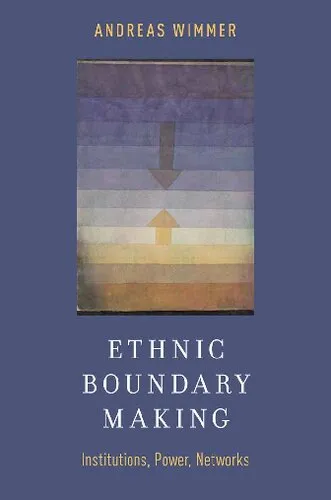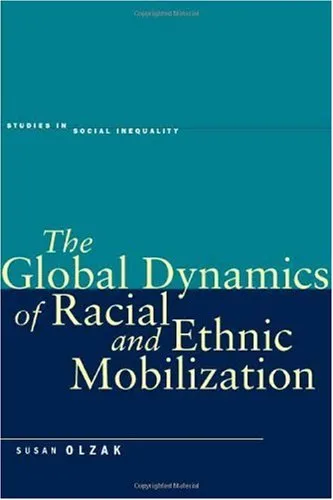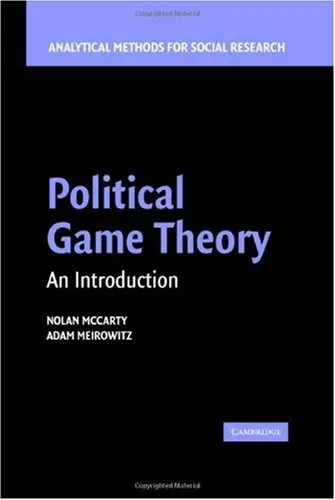Ethnic Boundary Making: Institutions, Power, Networks
4.0
Reviews from our users

You Can Ask your questions from this book's AI after Login
Each download or ask from book AI costs 2 points. To earn more free points, please visit the Points Guide Page and complete some valuable actions.Related Refrences:
Introduction to "Ethnic Boundary Making: Institutions, Power, Networks"
"Ethnic Boundary Making: Institutions, Power, Networks" by Andreas Wimmer explores one of the most critical social constructs of our time—ethnicity. This book presents a compelling and innovative framework for understanding how ethnic boundaries emerge, persist, transform, or dissolve in different social and political contexts. Wimmer combines insights from sociology, anthropology, and political science to offer a comprehensive account of these boundary-making processes.
The book pulls readers into an investigation of ethnicity that moves beyond simply describing it as a cultural or racial phenomenon. Instead, it delves into the dynamic interplay between institutions, power structures, and social networks. Wimmer enriches this analysis with comparative studies from different regions and historical periods, demonstrating the universal and complex nature of ethnic boundary-making. This seminal work has gained widespread recognition for its clarity, depth, and interdisciplinary approach.
A Detailed Summary of the Book
The central argument of the book is that ethnicity, rather than being inherent or static, is constructed and continuously reshaped through processes of boundary-making. Wimmer outlines three core mechanisms that define ethnic boundaries: institutional frameworks, the influence of power relations, and the role of social networks.
Wimmer systematically explains how institutions create and sustain these boundaries, whether through state policies, legal systems, or administrative practices. For instance, ethnic groups may be legally recognized or marginalized depending on institutional definitions, which often reflect the power dynamics of dominant versus subordinate groups. He argues that ethnic boundaries solidify or crumble depending on the political and economic stakes involved and how various actors use ethnicity as a tool or resource to assert their interests.
The book also highlights the significance of social networks in transmitting, reinforcing, or contesting ethnic boundaries. Importantly, Wimmer shows how individual and collective agency interacts with larger institutional and structural forces to produce unexpected outcomes, such as the emergence of new ethnic identities or the blending and blurring of previously rigid categories.
By presenting case studies from Africa, Asia, Europe, and the Americas, Wimmer demonstrates the universality of these processes while accounting for specific historical and cultural contexts. This comparative lens distinguishes the book from other works, providing a global framework for understanding ethnicity's fluid, contested, and often politicized nature.
Key Takeaways
- Ethnicity is not an immutable characteristic but rather a social construct shaped through dynamic processes.
- Institutions play a critical role in defining, legitimizing, or contesting ethnic boundaries within a society.
- Power dynamics often determine which ethnic group is dominant and which is marginalized, influencing social mobility and access to resources.
- Social networks are both carriers of ethnicity and spaces where ethnic boundaries are negotiated or transformed.
- Ethnic boundary-making processes are universally observed across diverse historical and cultural contexts, though each instance is shaped by its specific local dynamics.
Famous Quotes from the Book
"The boundaries of ethnic groups emerge not from timeless cultural differences, but through the dynamic interplay of institutions, power, and networks."
"Once we move beyond seeing ethnicity as a fixed or natural category, we begin to observe the political and social machinery that pulls these categories into being."
"Boundary-making is always about inclusion and exclusion, about defining us versus them—yet the lines dividing these spheres are never fixed."
Why This Book Matters
"Ethnic Boundary Making: Institutions, Power, Networks" is essential reading for academics, policymakers, and anyone seeking to understand the complexities of ethnicity in contemporary society. The book offers a theoretical toolkit for analyzing how and why ethnic distinctions arise and persist, making it particularly valuable for researchers in sociology, political science, and anthropology. Wimmer's interdisciplinary approach equips readers with the tools to think critically about ethnicity beyond surface-level assumptions and stereotypes.
In an era characterized by rising nationalist movements and ethnic tensions, this book provides a timely and nuanced perspective. It encourages readers to question simplistic narratives that treat ethnicity as fixed and immutable. Instead, Wimmer sheds light on the dynamic interplay of human agency, institutional design, and power dynamics that continually reshape the boundaries of ethnic belonging.
By highlighting the importance of social networks and individual actions, Wimmer also underscores the potential for change. Ethnic boundaries are not destined to remain as they are—they can be redefined, softened, or dismantled. This optimism, grounded in rigorous empirical research, sets the book apart as a forward-looking and hope-inspiring contribution to our understanding of ethnicity's role in human societies.
Free Direct Download
You Can Download this book after Login
Accessing books through legal platforms and public libraries not only supports the rights of authors and publishers but also contributes to the sustainability of reading culture. Before downloading, please take a moment to consider these options.
Find this book on other platforms:
WorldCat helps you find books in libraries worldwide.
See ratings, reviews, and discussions on Goodreads.
Find and buy rare or used books on AbeBooks.
1393
بازدید4.0
امتیاز0
نظر98%
رضایتReviews:
4.0
Based on 0 users review
Questions & Answers
Ask questions about this book or help others by answering
No questions yet. Be the first to ask!














